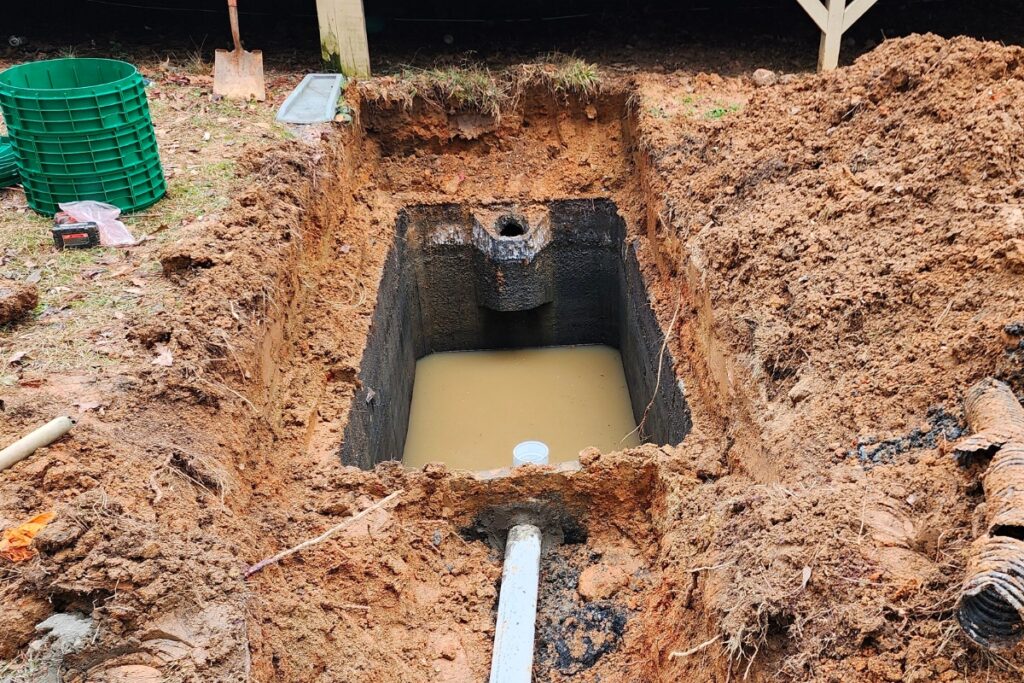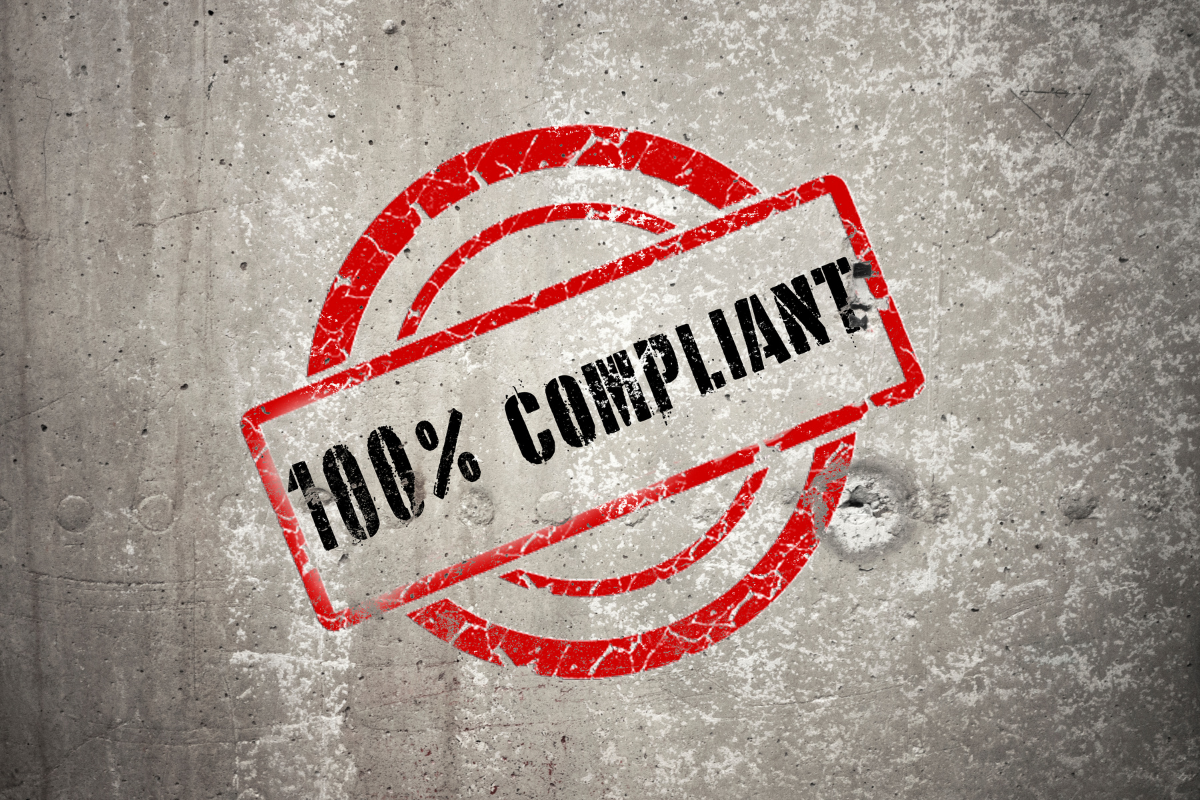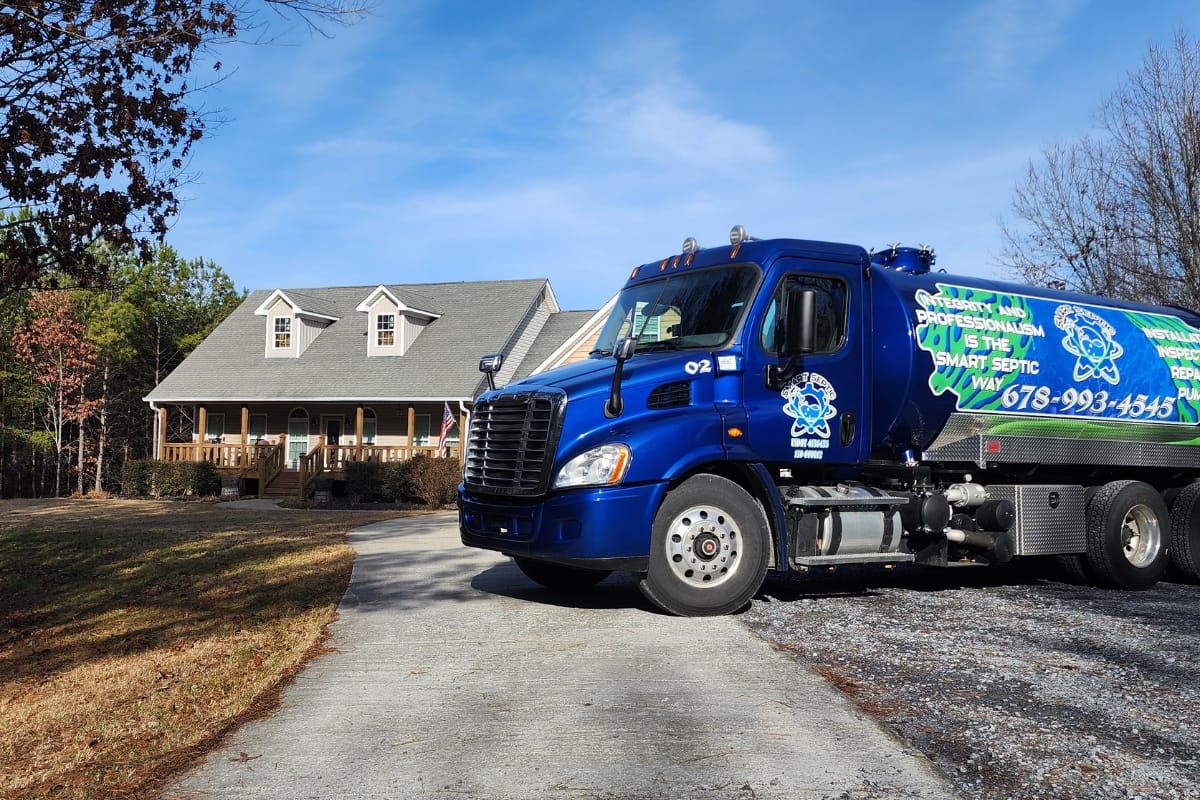In our modern society, it’s easy to take certain conveniences for granted. One such convenience is the ability to flush away our waste without a second thought. But have you ever wondered where it all goes after you press that lever? Enter the septic system, a vital component of many homes and businesses, quietly processing and disposing of our waste, far from the prying eyes of society. However, while septic systems play a crucial role in maintaining a healthy and clean environment, they are subject to septic system regulations that must be followed to avoid costly fines.
Understanding septic system regulations is not only crucial for avoiding penalties but also for maintaining a healthy and sustainable environment. So here, we will guide you through the intricacies of septic system regulations, helping you stay compliant and avoid those dreaded fines. Whether you’re a seasoned homeowner or a first-time buyer, this blog post will equip you with the knowledge and tools to navigate the complex world of septic system regulations, keeping you in compliance and your bank account intact.
Mastering Septic System Regulations Like A Pro
Why Septic System Regulations Exist
Septic system regulations are essential for maintaining public health and protecting the environment. These regulations exist to ensure proper installation of septic systems and to see to it that they are well-operated and maintained. By adhering to these regulations, homeowners can prevent the contamination of groundwater and avoid costly fines.
Here are some reasons why regulations for septic tanks are in place:
- Environmental Protection: Septic systems treat and dispose of domestic onsite wastewater treatment. Improperly functioning systems can release harmful bacteria, viruses, and chemicals into the environment, contaminating water sources. Regulations help prevent pollution and safeguard the quality of our water resources.
- Health and Safety: Malfunctioning septic systems can pose health risks to residents and neighboring communities. By regulating the design, installation, and maintenance of septic systems, authorities ensure that they function properly, minimizing the risk of disease transmission and exposure to hazardous substances.
- System Longevity: Regular maintenance and inspections are necessary to keep septic systems operating efficiently. Regulations help homeowners understand their responsibilities, such as pump-outs and inspections, which can extend the lifespan of the system and prevent costly repairs or replacements.
- Legal Requirements: Failure to comply with septic system regulations can result in fines, penalties, or even legal action. Homeowners are responsible for understanding and meeting these requirements to avoid financial and legal consequences.
Septic system regulations exist to protect public health, preserve the environment, and maintain the longevity of these wastewater treatment systems. By following these regulations, homeowners can avoid fines, prevent pollution, and ensure the safety of their communities.
The Environmental Impact Of Non-Compliance

When it comes to septic system regulations, staying compliant is not just about avoiding costly fines. It also has a significant environmental impact. Let’s delve into the reasons why non-compliance can harm the environment:
- Water Contamination: Septic systems that are not properly maintained or fail to meet regulations can lead to the contamination of nearby water sources. Untreated sewage can seep into groundwater or nearby bodies of water, polluting them with harmful bacteria, viruses, and chemicals.
- Ecosystem Disruption: The release of untreated sewage into the environment can disrupt the delicate balance of ecosystems. It can lead to the growth of harmful algal blooms, which deplete oxygen levels in water bodies, suffocating aquatic life and causing fish kills.
- Soil Degradation: Septic systems that do not meet regulations can result in the accumulation of excess nutrients in the soil. This can lead to nutrient overload, causing imbalances in the soil ecosystem and negatively affecting plant growth.
- Destruction of Natural Habitats: The pollution caused by non-compliant septic systems can harm the natural habitats of various flora and fauna. Wildlife that relies on clean water sources and healthy ecosystems may suffer, leading to a decline in biodiversity.
- Long-Term Environmental Impact: The damage caused by non-compliant septic systems may take years to recover. Restoring contaminated water sources and damaged ecosystems can be a lengthy and costly process. To protect the environment and prevent these negative consequences, it is crucial to adhere to septic system regulations.
Regular maintenance, proper disposal of waste, and regular septic tank inspections can help ensure that septic systems function effectively and minimize their environmental impact. By staying compliant, we can preserve our ecosystems and safeguard the environment for future generations.
Key Components Of Septic System Regulations
There are several key components that every homeowner should be aware of when it comes to septic system regulations. These regulations play an important role in ensuring public health and environmental protection. Here are the key components that you need to know:
- Permitting: Before installing a septic system, you must obtain the necessary septic system permits from the local health department. This ensures that the system meets the required standards and is properly designed and installed.
- System Design: Septic systems must be designed to meet specific criteria, including size, setback distances, and soil conditions. The design should consider factors such as the number of bedrooms in the house, soil permeability, and the water table level.
- Maintenance: Regular maintenance is crucial to keep your septic system functioning properly. This includes regularly pumping the tank, inspecting for leaks or blockages, and ensuring that the drain field is not overloaded. Failure to properly maintain your system can result in costly repairs and potential health risks.
- Inspections: Septic systems are subject to periodic inspections to ensure compliance with regulations. These inspections may be conducted by the health department or licensed professionals. It is important to schedule these inspections and keep accurate records to demonstrate compliance.
- Upgrades and Repairs: If your septic system fails or requires upgrades, you must comply with the regulations when making repairs or modifications. This may include obtaining permits, hiring licensed contractors, and following design specifications.
By understanding and adhering to these key components of septic system regulations, you can stay compliant and avoid costly fines. Regular septic tank maintenance, proper design, and adherence to local regulations will help ensure the longevity and efficiency of your septic system, protecting both your property and the environment.
Understanding Local Regulations And Permits

It is crucial to understand the local laws on septic tanks legislation and permits that are in place if you want to follow the septic system regulations. This knowledge can help you stay compliant. Here are some key points to keep in mind:
- Research: Start by researching the specific septic tank regulations and permits that apply to your area. Each locality may have different requirements, so it is important to have a clear understanding of what is expected.
- Permits: Determine if any permits are required before installing or maintaining a septic system. This may include permits for construction, repair, or replacement. Failure to obtain the necessary permits can result in penalties.
- Setbacks: Familiarize yourself with the setback requirements for septic systems. Setbacks refer to the minimum distance between your septic system and various features such as property lines, wells, water bodies, or buildings. Adhering to these setbacks is crucial for preventing contamination and ensuring proper system functionality.
- Maintenance: Understand the maintenance requirements for your septic system. Regular pumping and inspections may be mandated by local regulations. Failing to comply with these maintenance requirements can lead to system failures and a fine for illegal septic systems.
- Compliance Inspections: Be prepared for compliance inspections conducted by local authorities. These inspections ensure that your septic system is in compliance with regulations and operating properly. Non-compliance may result in penalties or even the need for system upgrades.
Adhering to septic system compliance requires an understanding of the local regulations on your septic system. It is essential to conduct thorough research, obtain necessary permits, adhere to setbacks, and maintain your septic system according to regulations. Remember, compliance is key to protecting your property, the environment, and your wallet.
Common Septic Tank Violations To Avoid
Common septic system regulation violations can lead to costly fines and serious consequences for homeowners. To ensure compliance and avoid these issues, here are some key violations to be aware of:
- Improper Tank Maintenance: Neglecting septic tank maintenance can result in system failure and contamination of groundwater. Regular pumping and inspection are essential to prevent blockages and overflow.
- Disposing of Harmful Materials: Flushing non-biodegradable items, chemicals, or excessive amounts of grease can clog pipes and disrupt the wastewater treatment process. Proper disposal of hazardous materials is crucial for the health of your septic system.
- Failure to Obtain Permits: Always check with your local authorities before installing or modifying a septic system. Failure to obtain the necessary permits can lead to fines and legal issues down the line.
- Drain Field Encroachment: Avoid planting trees, shrubs, or constructing structures over your drain field. The roots can infiltrate pipes, causing blockages and impairing the system’s ability to treat wastewater effectively.
- Neglecting Inspections: Regular inspections by a licensed professional are crucial to identify potential issues early on. Ignoring inspections can lead to undetected problems that worsen over time and cost more to fix.
- Overloading the System: Excessive water usage, such as doing multiple loads of laundry or taking long showers within a short period, can overload the septic system. This can lead to backups, system failure, and environmental contamination.
By understanding and avoiding these common violations, homeowners can maintain a compliant septic system, protect the environment, and avoid costly fines. Remember, residential and commercial septic system regulations exist to safeguard public health and preserve water quality, so it’s important to follow them diligently.
Consequences Of Non-Compliance

Non-compliance with septic system regulations can lead to serious consequences. Here are some of the potential outcomes:
- Fines and Penalties: Regulatory authorities can impose hefty fines and penalties on individuals or organizations that fail to comply with septic system regulations. These fines can be a significant financial burden and may escalate if the non-compliance continues.
- Environmental Damage: Septic system regulations exist to protect the environment and public health. Failing to comply with these regulations can result in the release of untreated wastewater, contaminating nearby water sources and causing harm to ecosystems.
- Health Risks: Non-compliant septic systems can pose health risks to individuals and communities. Untreated sewage can contaminate drinking water supplies, leading to the spread of waterborne diseases and infections.
- Property Damage: Neglecting septic system regulations can lead to system failures, such as blockages or overflows. These issues can cause damage to the property, leading to costly repairs and potential devaluation.
- Legal Consequences: Continued non-compliance can result in legal action. Regulatory authorities may take legal measures to enforce compliance, which can include court hearings and injunctions.
- Difficulty Selling Property: Non-compliant septic systems can make it challenging to sell a property. Prospective buyers may request inspections and compliance certificates, and if the system fails to meet regulations, it can deter potential buyers or lead to negotiations on the sale price.
- Reputational Damage: Non-compliance with septic system regulations can tarnish the reputation of individuals or businesses. Negative publicity and word-of-mouth can impact trust and credibility, affecting relationships with customers, clients, and the community.
It is crucial to prioritize compliance with septic system regulations to avoid these consequences. Regular maintenance, inspections, and adherence to local regulations can help ensure the proper functioning of septic systems, protect the environment, and safeguard public health.
Tips For Staying Compliant With Septic System Regulations
Staying compliant with septic system regulations not only helps protect the environment but also prevents costly fines and repairs. Here are ways on how you can do it:
- Regular Maintenance: Schedule regular inspections and maintenance for your septic system to ensure it is functioning properly. This will help you identify and address any issues before they become major problems.
- Proper Waste Disposal: Follow the guidelines for waste disposal set by your local regulatory authority. Avoid flushing or draining anything that could harm your septic system, such as chemicals, oils, or non-biodegradable materials.
- Monitor Water Usage: Be mindful of your water usage to prevent overloading your septic system. Spread out activities that require a large amount of water, such as laundry or showering, throughout the week. This helps your system handle the volume more effectively.
- Avoid Excessive Grease: Grease and fats can clog your septic system, leading to backups and costly repairs. Dispose of cooking grease in a separate container and throw it in the trash instead of pouring it down the drain.
- Educate Household Members: Ensure that everyone in your household understands the importance of septic system compliance. Teach them about the dos and don’ts to prevent accidental damage to the system.
- Keep Records: Maintain a record of inspections, maintenance, and any repairs done to your septic system. This documentation will come in handy if you ever need to prove compliance with regulations or when selling your property.
- Hire Professionals: When it comes to septic system maintenance or septic tank repairs, it’s best to hire professionals who are knowledgeable about local regulations. They can ensure that the work is done correctly and in compliance with the requirements.
Remember, a well-maintained septic system is not only good for the environment but also for your wallet. By following these tips, you can ensure the longevity and efficiency of your septic system while avoiding unnecessary hassle.
Don’t Get Caught Off Guard: Decoding Septic System Regulations For A Hassle-Free Life

Septic system regulations exist to ensure that septic systems function properly, preventing the contamination of groundwater and nearby bodies of water. By adhering to these guidelines, you play an active role in protecting the environment and preserving the health of your community. With Smart Septic Pros, you can ensure that your septic system is not only flushing away waste efficiently but also complying with regulations that safeguard the health of both you and the environment.
When it comes to your septic system needs, there’s no need to stress or worry. Our team offers professional septic system services that are unmatched in quality and expertise. Whether you need routine maintenance, repairs, or installation, you can trust us to provide top-notch services with exceptional results. Get in touch with us to schedule your septic system service and experience the difference for yourself.





